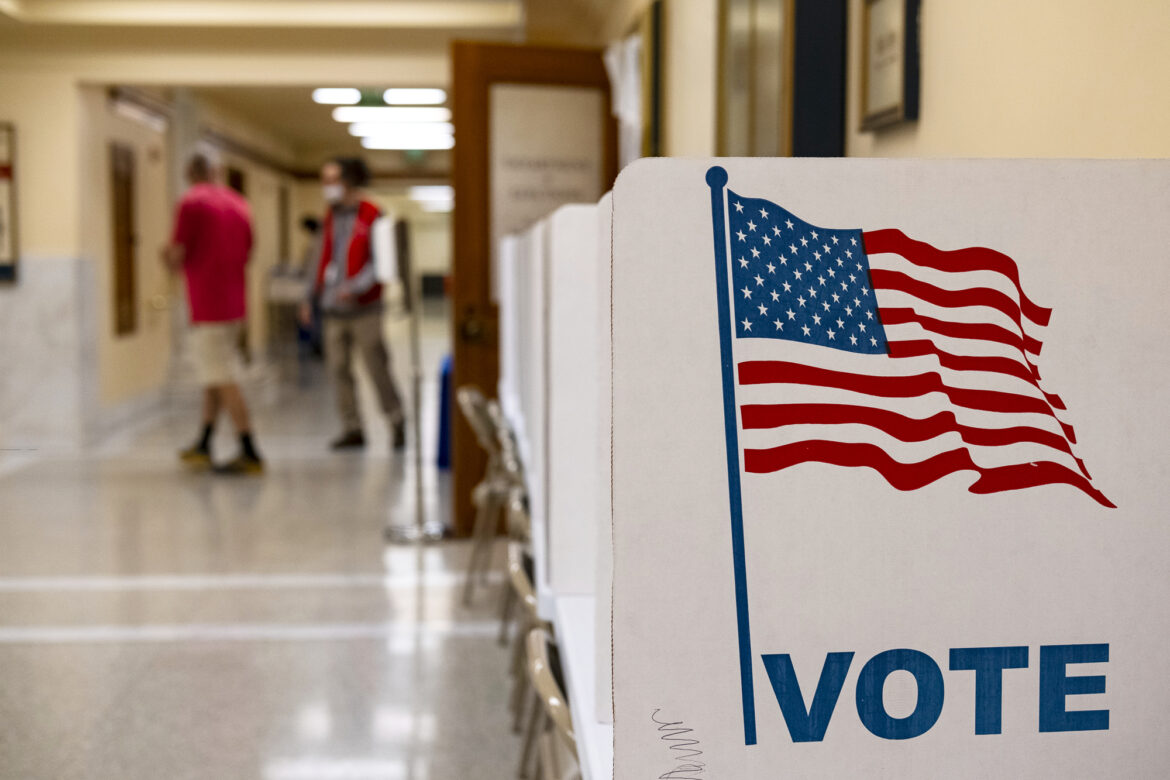For months leading up to Tuesday’s primary election in San Francisco, debate has swirled around new rules allowing many, but not all, candidates to use authentic-looking Chinese names on the ballot. In the past, candidates have chosen names to communicate concepts, including political values and ethnic identity, to appeal to Chinese voters.
But when the polls open tomorrow, how much will the names actually affect voters’ decisions?
Probably not much, some experts say.
“Just having a Chinese name on the ballot, that’s not going to do it for you,” said Jim Ross, a San Francisco-based political strategist and consultant who leads focus groups studying local Chinese voters. “You’re not going to win or lose because of that.”
Having an authentic Chinese name can help someone secure votes in a close race if other information about candidates is scarce, recent research shows. By that logic, candidate names could be a meaningful factor in some local races this March. But San Francisco’s Chinese voters are likely to choose candidates for other reasons, Ross said, because they’re generally more up to speed on local politics than their counterparts in other cities.
That’s thanks in part to robust Chinese-language news coverage in San Francisco, he added.
The San Francisco Public Press spoke with three researchers and four local political experts in an effort to find out how important having an authentic Chinese name on the ballot is to electability. None said that it was a decisive factor.
About one-third of the city’s residents are Asian American, most of whom are Chinese or Taiwanese, according to a recent analysis by the San Francisco Chronicle. The groups, especially Chinese Americans, drew attention from political hopefuls and local media during the pandemic, when they were instrumental to the recalls of District Attorney Chesa Boudin and board members for the San Francisco Unified School District.
Asian Americans tend to base their votes primarily on information like party affiliation and specific policy positions, according to 2023 findings by Pew Research Center. But that information isn’t always available, leaving Asian and Chinese American voters to make election decisions based on factors relating more to identity, based on research by Sara Sadhwani, an assistant professor of politics at Pomona College who studies Asian American and Latino voting behavior.
“What is it, then, that people rely on if they don’t have a lot of information about the candidates themselves?” Sadhwani said. “They might rely on the perceived race of the candidate.”
In other words, those voters can lean toward people who seem to have ties to their own community, according to her research, which examined voting behavior in the Bay Area. A Chinese surname, or a full name that looks authentically Chinese, can send the message that the candidate and voter belong to the same ethnic group, even if that is not true.
Sadhwani’s isn’t the only research to find that names can affect election outcomes, especially during primaries, which are usually more information-poor than general elections. Studies have found that candidates can get more votes by changing their names to suggest a specific ethnic heritage, sound more American or have positive connotations — for example, with last names like “Best,” “Lillie” or “Armstrong.”
[Sign up for the Public Press newsletter for updates about new reporting and events.]
It is possible that candidate names carry some weight this March in the local races for seats on the San Francisco Superior Court and the Democratic County Central Committee, aka the DCCC, which governs the local party. Ballots omit party affiliation for judge candidates, and DCCC candidates are all Democrats, so voters can’t use party affiliation to compare people.
That could mean a disadvantage for the candidates who could not get their preferred Chinese names onto the ballot because they failed to satisfy state guidelines by proving that they had been using the names for two years.
Nearly one-third of the people vying for DCCC seats had their Chinese names rejected, as did both of the candidates running for one of the Superior Court judge seats. For those candidates, ballots instead feature phonetically transliterated Chinese names that are unconventional and less memorable. They are lengthy strings of characters that, rather than conveying ideas like “kind” or “justice,” approximate the sounds of English names.
But the effect on election outcomes is probably minor, some local political experts say, because many Chinese voters are too savvy and careful to be swayed by a name in the first place.
“With Chinese voters, you hear a lot like, ‘I don’t want to make a mistake,’” Ross said.
And because candidates’ Chinese and English names appear side-by-side on the bilingual ballot, voters can often figure out their true ethnic identities.
“People are going to be saying ‘Oh, look at that name, I can suspect that even though he has a Chinese name, he’s not going to be Chinese,’” said Josephine Zhao, who previously ran for the city’s school board and has connected politicians with people who helped them come up with their Chinese names.
Rather than being vital to a candidate’s chances, an authentic-looking Chinese name on the ballot may just give them a slight edge, said retired local political strategist David Latterman. If securing a name “takes no effort and costs no money and it can get you a single vote, it’s worth it,” Latterman said.










